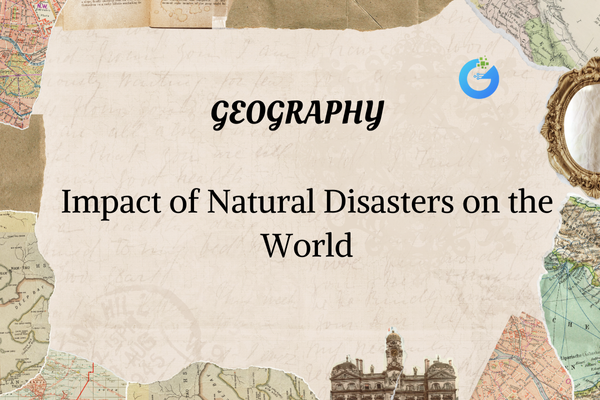Introduction
Democracy is based on the powerful idea that every citizen has a voice. It promises equal rights, freedom, and justice for all. But building and maintaining a true democracy is not easy. It’s not just about holding elections every five years—it’s about how fairly those elections are conducted, how informed the people are, and how the government works in everyday life.
While democracy is considered the best form of government by many, it also faces serious challenges—both visible and hidden. These challenges don’t just exist in India but affect democracies all over the world.
In this chapter, we’ll explore the most common challenges to democracy, their real-world examples, and how we—especially students—can help protect this powerful system.
expert-led Civics classes – visit our website to learn more
What Makes a Democracy Strong?
For a democracy to be truly successful, it must ensure:
- Free, fair, and frequent elections
- Equal participation of all citizens
- Respect for rights and laws
- Transparency in government actions
- Accountability of leaders
- An active and informed public
Common Challenges Faced by Democracies
1. Inequality and Discrimination
Even in democratic countries, many people face barriers because of:
- Caste
- Religion
- Region
- Gender
- Economic status
Example: A qualified girl from a rural area is denied education because of her gender or caste. This goes against the democratic promise of equal opportunity.
2. Corruption and Misuse of Power
Some leaders:
- Accept bribes
- Favor relatives or party members
- Use government resources for personal gain
This breaks trust and discourages people from participating in the system.
3. Lack of Awareness Among Citizens
A democracy needs informed voters. But many people:
- Don’t know their rights
- Vote based on caste, religion, or money
- Aren’t aware of what political parties actually stand for
This weakens the foundation of democracy.
4. Criminalization of Politics
Sadly, some people with criminal backgrounds contest and win elections. This happens when:
- People are scared of them
- They use money and muscle power
- Voters feel there is no better option
This leads to unsafe governance and weakens law and order.
5. Low Participation in Political Life
Democracy is not just about voting. It’s also about:
- Asking questions
- Attending meetings
- Protesting peacefully
- Holding leaders accountable
But most people only vote and stay silent afterward. Youth, women, and the poor are especially underrepresented.
6. Influence of Money and Muscle Power
During elections, rich candidates often:
- Spend crores on advertisements
- Distribute gifts or cash
- Hire local strongmen to influence voting
Meanwhile, honest or poorer candidates can’t compete. This creates an uneven playing field.
7. Lack of Internal Democracy in Political Parties
Inside many parties:
- There are no real elections
- The same families or leaders stay in power for decades
- Ordinary workers have no say in decisions
This means undemocratic parties run a democratic country—which is ironic and dangerous.
8. Spread of Fake News and Misinformation
Social media spreads information fast—but not always the truth.
Fake news can:
- Create panic
- Spread hate
- Mislead voters
- Influence elections unfairly
How Can These Challenges Be Solved?
| Challenge | Solution |
| Lack of voter awareness | Civic education in schools, public campaigns |
| Corruption | Stronger laws, watchdog agencies, citizen reporting |
| Use of money in elections | Spending limits, audit of party funds |
| Underrepresentation of women | Reservation in Parliament and local bodies, leadership training |
| Internal party dictatorship | Making party elections compulsory and transparent |
| Fake news and hate speech | Promoting fact-checking, digital literacy, and stronger online rules |
Role of Citizens in Strengthening Democracy
Every citizen—young or old—can play a role in keeping democracy alive:
- Vote responsibly after understanding candidates and their promises
- Fact-check news before sharing it
- Raise questions—don’t blindly trust anyone
- Participate in discussions, debates, or peaceful protests
Core Concepts Table
| Term | Definition |
| Electoral Fraud | Unfair methods used to win elections |
| Political Corruption | Misuse of government power for personal gain |
| Civic Participation | Taking part in politics and public issues beyond voting |
| Internal Party Democracy | Fair elections and decision-making within a political party |
| Discrimination | Treating someone unfairly based on caste, gender, religion, or class |
Frequently Asked Questions
Q1. What are the biggest challenges to democracy today?
Inequality, corruption, lack of awareness, fake news, and power misuse.
Q2. Why is an informed voter important?
Because uninformed voters can be easily misled, which weakens the entire system.
Q3. What is internal democracy in political parties?
When party members get to elect their leaders and participate in decisions fairly.
Q4. How can fake news affect democracy?
It spreads lies, creates division, and confuses voters during important decisions.
Q5. What can students do to support democracy?
Learn, stay informed, speak up, encourage truth, and help others understand their rights.
Fun Facts
- In 2004, over 24% of MPs elected in India had criminal cases pending.
- Some democracies like Australia make voting compulsory.
- Youth-led campaigns in countries like the USA, Hong Kong, and Chile have changed national laws.
- The word “democracy” comes from the Greek words demos (people) and kratos (rule)—meaning “rule by the people.”
Conclusion: Democracy Needs Defenders
Democracy is not something that works by itself. It needs active people, fair rules, and honest leaders. While it may face many challenges—from corruption to misinformation—its strength lies in the hands of the people.
We, the citizens, are its protectors.
By staying informed, raising our voices, and supporting fairness, we can ensure that democracy not only survives—but thrives.








